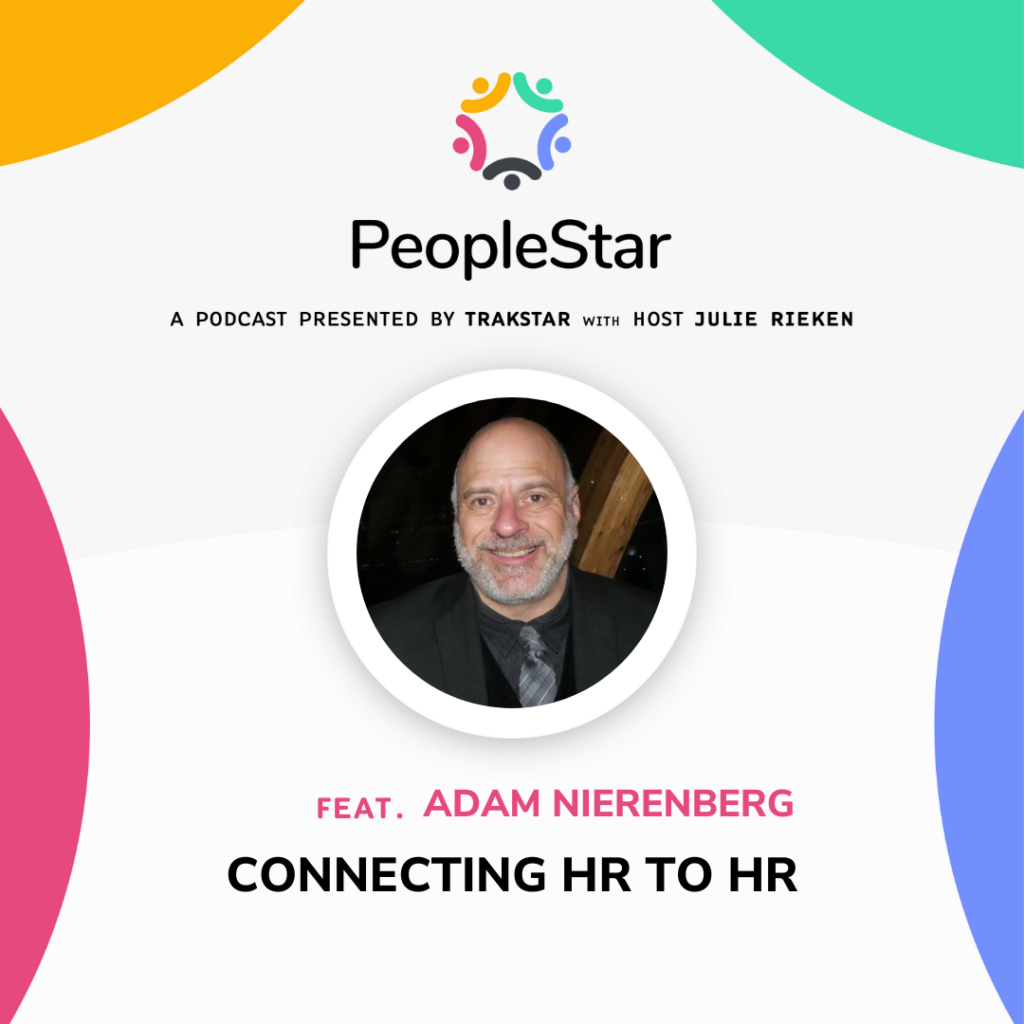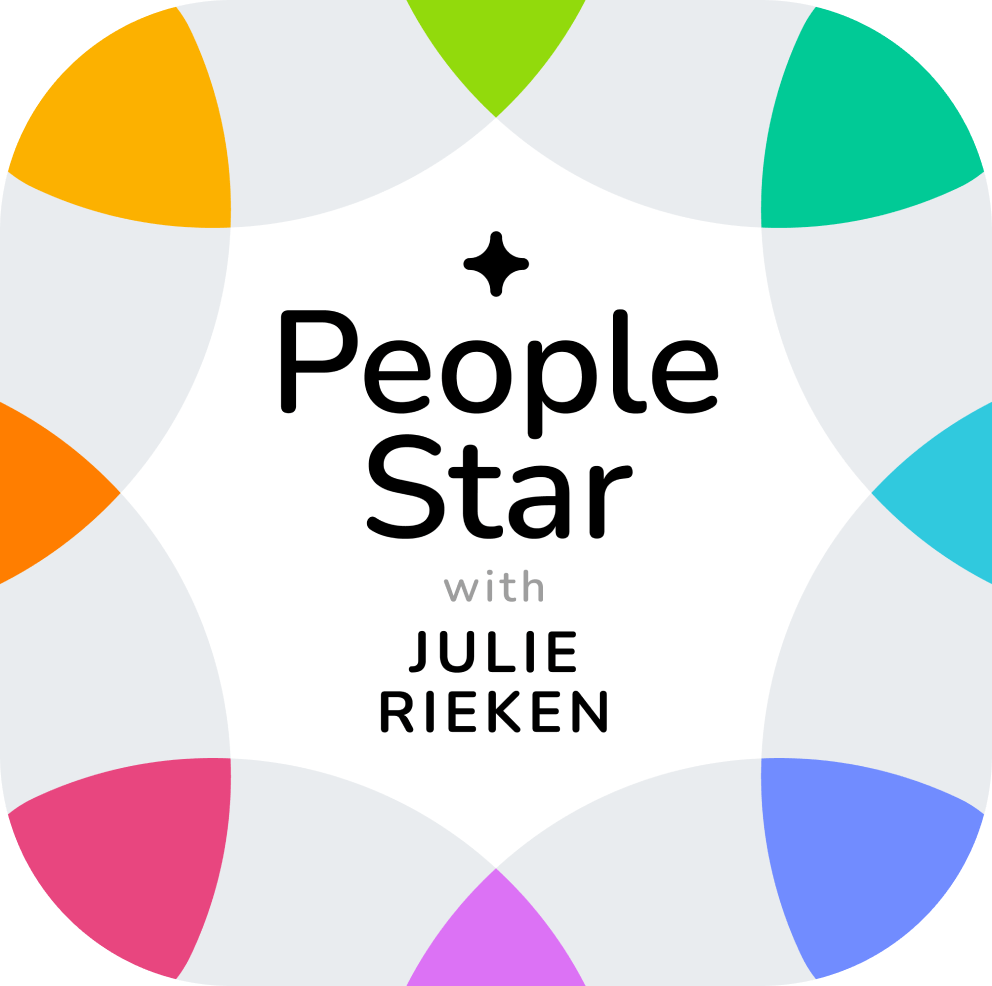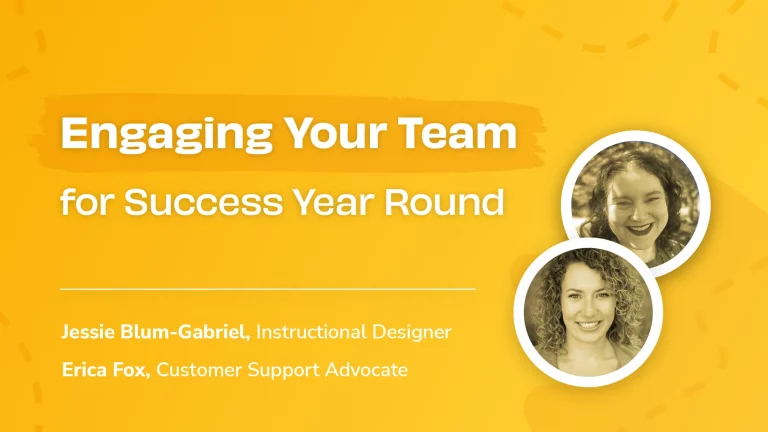PeopleStar_Addam Nierenberg: this mp3 audio file was automatically transcribed by Sonix with the best speech-to-text algorithms. This transcript may contain errors.
PeopleStar Intro/Outro:
Welcome to the PeopleStar Podcast. We deliver leadership perspectives from industry experts on their people, architecture, routines, and culture as they solve HR's newest challenges. And now your host, Julie Rieken.
Julie Rieken:
Hello podcast listeners. Julie Rieken, host of PeopleStar Podcast. I have a great guest today. We're going to connect HR to HR. I love that because, you know what we like is HR people? To hear stories about other HR people and how we all grown and learned together. So today I have Adam Nierenberg. He is the human resources director for TSG Management Group and owner and operator of over 30 quick-service restaurant locations in western New York. He's got a great background, I'm going to let him introduce himself and give you a little bit more. But we're going to talk HR today and share some stories. And I'm excited to welcome you, Adam. Thank you for joining today!
Adam Nierenberg:
Oh, thank you, Julie. It's so great to be here and I appreciate the invitation. So to tell you and your audience a little bit about myself. I've been in Human Resources for about ten years now. I've been in so many different industries, call center, I've been in real estate management in HR, I've been in manufacturing's HR and now currently, as you indicated to your audience, I'm the human resources director of TSG management group. They own more than 30 quick service restaurants in western New York, which includes Buffalo and that whole area up there. I love engaging with our people and working with them and it's really great to be here.
Julie Rieken:
I'm so glad you said that. I think that's just a really important thing about HR people. We like to connect and it's been really hard to connect in the last few years and it's been, I think, a heavier job for HR in the last couple of years. Before we even get into how you connect, can we just talk a little bit about how you actually have disconnected and why this is so important for you at this time? And then we're going to go into how you do connect. So how do you get your head out of the HR game, which has been so intense for the last couple of years?
Adam Nierenberg:
Hobbies are the best. I am a musician, so I play guitar, I … sing, I go to open mics, and I love that aspect of my life. Music is a very great passion to me. I've had my own podcast talking about music, so that's what really keeps me rooted. I also have a family life, so I do have a wife. We have two boys and a dog. And for me, on a personal level, life couldn't be even better.
Julie Rieken:
I love that. Gosh, if we had a second podcast, I think we'd have to ask you to break into song, which would really probably improve the quality of this podcast. I think you could add to it out of a lot. … Amazing.
Adam Nierenberg:
Okay.
Julie Rieken:
Tell me what you learned about being in a band and from music that applies to HR!
Adam Nierenberg:
That's a great question. So when you're in a band and it could be any band and if you watch your own favorite bands and how they work together, it would include any of the major bands and see the dynamics of how each individual personality rises to the surface. So you have people that are the natural leaders, you have the people that kind of hold back. Sometimes you have a member that's not carrying their weight. You do have to make those changes in any band. So even in my own band, I've had to swap out drummers for whatever reasons it might be. I've left bands because of personal conflicts. So it all happens, like even, if you watched the Get Back movie, the Peter Jackson with the Beatles. At one point, George gets up and redeems. It's like I'm done, and he leaves. They had to convince him to return, but you could see the end threads of how the Beatles were kind of working through their own issues in that documentary. So as with work, a band is a business as well.
Julie Rieken:
Yeah, it's like a microcosm of work, it sounds like. Which.
Adam Nierenberg:
It is.
Julie Rieken:
Which maybe leads me to a question about, one of the threads that that I'd like to pull on here is the idea that sometimes things are working and sometimes things aren't. And I'm wondering, have you ever had to adjust the culture at your organization in a work sense where you've described what you had to do with a band, but adjusting the culture at work is something we all face and it's not easy. Have you ever had to do that? And if so, how did you do it? How did you approach it?
Adam Nierenberg:
Of course. And every, everybody's an individual. And in order to convey that to them and how they ought to be working together to avoid, say, sandbox fighting, that's one thing that I see a lot and I've seen in all different industries, when you get to people that are just butting heads and there's just no way to get around it, there's a hard truth out there that I tell them as we're bringing them on that you don't have to like each other to respect each other. They happen to be two different concepts, although many people, oh he did the same, they're really not. Respect comes from just taking the individual … as they are rather than having to invest your liking them. So you can still work with someone, be respectful to them. But when you leave, you're not going out together for an after-work drink or you're not socializing with them on any level. You can work, you see them, you respect them, and then you move on with your day. They shouldn't. It's two completely different concepts we try to make our employees visualize.
Julie Rieken:
Yeah, that's super important. You know, I'm wondering when you think about working with employees, do you have any ways that when you're thinking about employees, symbols, myths or stories that you tend to share in your organization?
Adam Nierenberg:
Well, the individuals are what matter to me. So when I speak with them, allegories are great. Most of the time, if I speak to them, I'll speak to them from my own personal experience. But what I'm really looking for is what their issue is, so we work specifically with their issue. Working with them for coaching, working with them to tell them the why of what's happening. That seems to be very important that I see a lot of companies don't focus on. I love focusing on the why. If you are coaching someone to do better, they're doing what they're doing, you need the why to, say, how the impact of what they're doing affects the business, affects their interpersonal relationships with each other. Whatever aspect you're coming from, the whys, the most important part of it, that's where the coaching comes.
Julie Rieken:
Adam, that strikes me as something that I bet you're probably pretty good at it. Maybe I'm pulling the wrong thread here, but being able to explain the why maybe comes from some of your background, and it's not just been in HR. You spent years owning your own business and in mortgage finance. What did you learn from that that maybe helps you explain the why to people, of what they need to do?
Adam Nierenberg:
Well, in any business, you have to be able to perform. So if you're coming intrinsically knowing the why, there should be a way where, well, once you reach a certain level you should be able to convey that to them. And I learned, I had a lot of great mentors, the HR people I've worked under, other supervisors I've worked under, who've taken the time to teach me the business that I'm in, whether it was mortgage finance or whether it was working with franchise agreements, which is how, one of the aspects of what I'm doing now that I understood how a franchise agreement works and how it relates to the business operations. So learning all of that and incorporating everything I've worked with to achieve where I'm at as the director of human resources for the group I'm in.
Julie Rieken:
I love that. Can you, can I take a diversion here and just ask you in terms of, you're the HR director for something pretty big here with a lot looks like to me, if you're doing quick service restaurants, you've got some really specific challenges these days. Can you just tell us what is the thing that's mind the most? Like, what's your biggest challenge in this space?
Adam Nierenberg:
Today, we're working with 1200 individuals, all working for one goal, and that goal is for their restaurants to be profitable. So then you have the overall business structure. So all of that comes back to how we all engage each other. That's the biggest takeaway from HR, it's helping to promote the positive engagement. So we're all having that value to work together toward that one goal, wven though it's more than 30 individual places, it all goes to the company's total bottom line.
Julie Rieken:
I love that. Which leads me to maybe this final question. You've got multiple restaurants, everybody's, you're looking for profitable restaurants, everybody is, that's what keeps the economy going and keeps our jobs here. Do you have any traditions or any things that you do to celebrate when they are profitable? Things that people love? Anything that's unique that you all do that helps motivate them in that space?
Adam Nierenberg:
And I loved this because we have metrics that each restaurant has two. So depending on the metrics, that can be the specifics, but we have two prizes that we give to stores that we different metrics. So if you meet one, the store gets this gigantic cup,a trophy cup, it's like it's gigantic, literally, and …
Julie Rieken:
… For different?
Adam Nierenberg:
It's kind of like the Stanley Cup, it's ginormous, it's a pretty big cup. It stands about two feet tall it's about maybe like 18 inches wide. It's gigantic and they're meant to display it. We also have a belt which kind of resembles a WWE belt that any professional wrestler who's the winner would wear, that they can they throw over their shoulder and we tell them, display the cup and the belt, display it. Be proud of it because you earned it.
Julie Rieken:
Okay, I love that. And so the reason I mentioned the Stanley Cup is because, for our listeners, I can see Adam, he and I are on a Zoom call and he's using his hands to, to show the size of this cup that he's describing and sounds it sounds pretty awesome. So, okay, I just have one other, this is maybe a very specific question, but do you buy multiple cups like this? Does every restaurant get one or do they have to transfer it to the next winner.
Adam Nierenberg:
Each, now, if the store meets it, they get to hold it. But if not, yes, then it gets taken from their store bought to the other store.
Julie Rieken:
So they're very motivated to keep it and everybody kind of rotates, so it's a point of pride.
Adam Nierenberg:
It's not rotated because it's based on the metrics to earn the cup ….
Julie Rieken:
I love it, super fun. And I bet that's really motivating for all of the restaurants to, to try and earn that, that cup and that WWE Belt. That's a really fun example of some of the fun culture that you've incorporated. So I love it. Adam, I've learned a ton, it's been fun. I hope other HR directors are just thinking about the things that, that you do for fun. You know, how, how have your life experiences connected to HR and I have certainly enjoyed connecting with you today. Thank you for being a guest.
Julie Rieken:
Julie, thank you so much. It's been a pleasure and I hope to speak with you again …. program.
Julie Rieken:
Thank you.
PeopleStar Intro/Outro:
Thanks for listening to the PeopleStar Podcast. For the show, notes, transcript, resources, and more ways to get a seat at the table, visit us at TrakStar.com/Podcast.
Sonix has many features that you’d love including upload many different filetypes, world-class support, secure transcription and file storage, collaboration tools, and easily transcribe your Zoom meetings. Try Sonix for free today.




